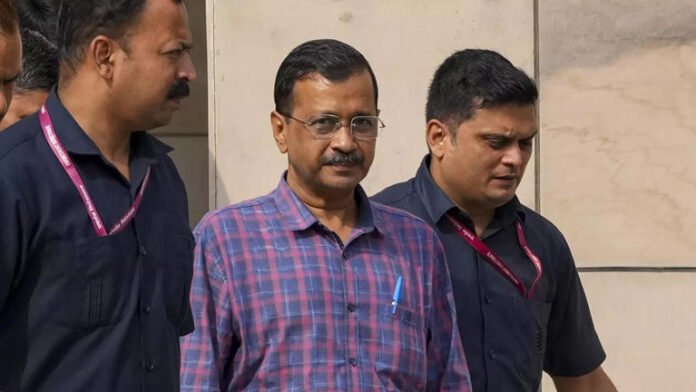Delhi Chief Minister Arvind Kejriwal found himself at the center of serious accusations. However, amidst the uproar and speculation, the Supreme Court of India granted him interim bail, raising eyebrows and prompting a deeper exploration of the legal intricacies surrounding the case.
The accusations against Kejriwal, a prominent figure in Indian politics known for his anti-corruption stance and pro-people policies, are indeed weighty. Allegations of financial irregularities and misuse of public funds have been levied against him, casting a shadow over his tenure as the head of the Delhi government. The gravity of these accusations cannot be overstated, especially considering the position of trust and responsibility that Kejriwal holds.
In the face of such serious charges, the decision of the Supreme Court to grant interim bail to Kejriwal may appear perplexing to some. However, it is crucial to understand that the legal system operates on the principle of innocence until proven guilty. While the allegations against Kejriwal are undoubtedly concerning, they remain just that – allegations. The granting of interim bail does not signify exoneration but rather a recognition of the individual’s right to due process and fair trial.
One of the primary reasons behind the Supreme Court’s decision to grant interim bail is the principle of preserving personal liberty. The right to liberty is enshrined in the Constitution of India and is considered fundamental to the democratic fabric of the nation. In cases where there is no immediate threat to public safety or risk of tampering with evidence, the courts often lean towards granting bail to ensure that individuals are not unduly deprived of their freedom pending trial.
Moreover, the Supreme Court’s decision underscores the importance of maintaining the balance between individual rights and the interests of justice. While the allegations against Kejriwal are serious, it is essential to avoid pre-judgment and allow the legal process to run its course. Granting interim bail allows Kejriwal to continue discharging his duties as the Chief Minister of Delhi while simultaneously affording him the opportunity to defend himself in a court of law.
It is also worth noting that the decision to grant interim bail is not tantamount to a final verdict on the merits of the case. The court’s primary concern at this stage is to ensure that the accused has adequate opportunity to prepare their defense and present their case before the judiciary. The presumption of innocence remains intact, and Kejriwal will have the opportunity to refute the allegations against him through legal proceedings.
Furthermore, the Supreme Court’s decision reflects a commitment to upholding the principles of natural justice and procedural fairness. In a democratic society governed by the rule of law, it is imperative that legal proceedings are conducted in a manner that is transparent, impartial, and free from undue influence. By granting interim bail to Kejriwal, the court sends a clear message that all individuals, regardless of their stature or political affiliation, are entitled to a fair trial.
In addition, the decision of the Supreme Court to grant interim bail to Delhi Chief Minister Arvind Kejriwal amidst serious accusations underscores the fundamental principles of the Indian legal system. It reaffirms the presumption of innocence, protects individual liberties, and upholds the principles of natural justice. While the allegations against Kejriwal are indeed grave, it is essential to allow the legal process to unfold without prejudice or bias. Only through a fair and impartial trial can the truth be ascertained, and justice be served.

